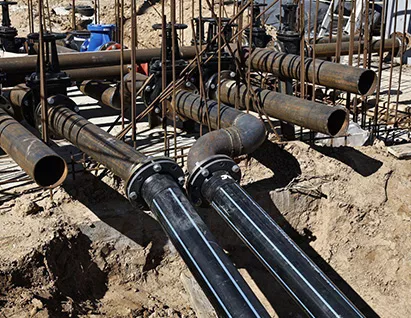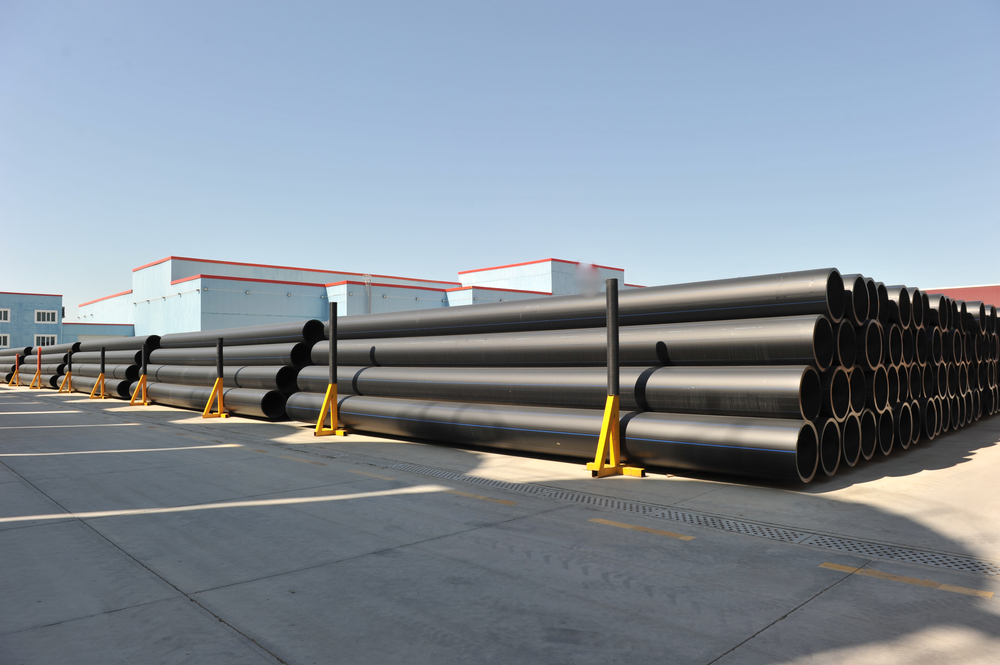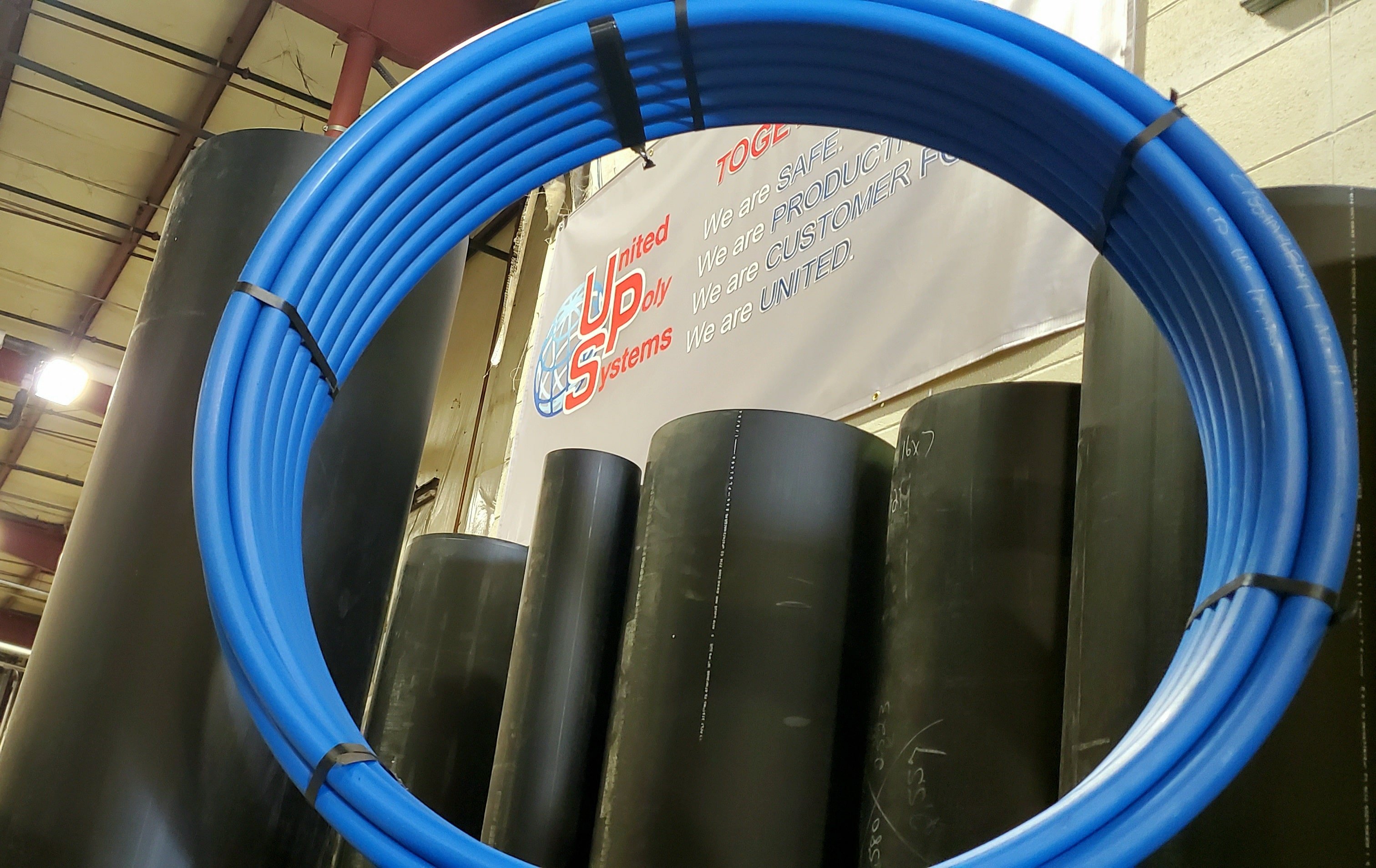Pipeline Manufacturer vs. alternatives: why they’re the better choice
Wiki Article
Discovering the Leading Pipeline Manufacturers: High Quality, Integrity, and Development
The pipeline manufacturing sector stands at the crossway of development, top quality, and reliability, driven by leading companies such as Tenaris and Vallourec. These suppliers are not only dedicated to generating high-performance materials yet are also pioneering lasting methods that attend to modern-day environmental problems (Pipeline Manufacturer). As we check out the standards that specify quality in pipeline services, it comes to be noticeable that the landscape is rapidly evolving. What particular advancements are emerging, and how are these advancements forming the future of pipeline facilities? The answers might redefine industry requirements in manner ins which are not yet completely recognizedLeading Manufacturers Review
In the domain name of pipeline manufacturing, several principals become leaders, each contributing substantially to the market's landscape. Business such as Tenaris, Vallourec, and JFE Steel have developed themselves as frontrunners by consistently providing top notch items that fulfill stringent sector criteria. Tenaris, renowned for its cutting-edge services, concentrates on smooth and bonded pipes, catering mainly to the oil and gas sector. Vallourec, a French international, concentrates on the manufacturing of costs tubular options, highlighting sustainability and advanced technology in its manufacturing processes.JFE Steel, a significant Japanese manufacturer, is acknowledged for its extensive variety of steel pipes, specifically those made use of in energy and infrastructure projects. Their dedication to research and growth has allowed them to generate high-performance materials that withstand rough environmental conditions. Additionally, business like U.S. Steel and National Oilwell Varco have actually broadened their market presence by expanding their item offerings and enhancing functional performances.
These leading suppliers not just control the marketplace but also drive innovation within the market, setting benchmarks for quality and reliability that other gamers desire accomplish. Their payments are vital for satisfying the raising demand for efficient and sturdy pipeline options worldwide.
Criteria for High Quality Analysis
Quality analysis in pipeline manufacturing rests on 2 crucial standards: product resilience requirements and making procedure performance. Making sure that products fulfill strenuous durability criteria is essential for the durability and integrity of pipelines. Additionally, optimizing the manufacturing process can improve efficiency while preserving excellent quality, eventually affecting overall performance and security.Material Sturdiness Specifications
Guaranteeing the durability and reliability of pipeline materials is vital for maintaining infrastructure integrity and operational efficiency. Product resilience criteria play an essential role in assessing the high quality of pipes, determining the efficiency and life expectancy of the materials utilized in construction. Manufacturers need to follow a variety of rigorous standards, consisting of those established by organizations such as ASTM International and the American Petroleum Institute (API)These standards review numerous elements, consisting of deterioration resistance, tensile strength, and fatigue performance. For circumstances, pipelines made use of in destructive atmospheres require products that can hold up against chemical degradation, while those based on high-pressure conditions have to show exceptional tensile stamina.
In addition, elements such as temperature level changes and ecological conditions have to be thought about, as these can significantly affect material behavior with time. Manufacturers commonly utilize sophisticated screening methodologies, including sped up aging examinations, to mimic lasting wear and guarantee that materials go beyond or meet market standards.
Manufacturing Process Efficiency
Manufacturers' capacity to enhance producing procedure performance is essential for generating premium pipes that meet rigorous industry standards. Efficiency in manufacturing directly affects price administration, production timelines, and overall product integrity. To attain this, leading pipeline manufacturers execute sophisticated methods such as lean manufacturing, automation, and real-time information analytics.Lean manufacturing principles are vital in decreasing waste and optimizing source application. By streamlining processes and eliminating redundancies, manufacturers can enhance productivity while making sure constant high quality. Automation modern technologies, consisting of robotics and computer system mathematical control (CNC) devices, play an essential function in improving precision and lowering human error, therefore raising the dependability of the end product.
Furthermore, using real-time data analytics allows producers to keep track of production processes continually, allowing them to determine bottlenecks and make timely adjustments. This aggressive strategy not just enhances effectiveness yet likewise supports quality control methods by ensuring conformity with regulative standards.
Reliability in Pipeline Solutions
Integrity in pipeline services is extremely important, as it straight impacts the safety and security and performance of fluid transportation systems. Key factors include the durability of materials utilized, adherence to rigorous screening and qualification criteria, and the unification of innovative material services that improve performance. Comprehending these elements is essential for makers aiming to deliver dependable pipeline facilities.Significance of Sturdiness
Accomplishing toughness in pipeline solutions is essential, as it directly affects the long-term efficiency and security of framework. Resilient pipes are important for decreasing maintenance prices and decreasing the chance of catastrophic failures. This integrity is especially vital in sectors such as oil and gas, water supply, and wastewater management, where the consequences of pipeline failing can be extreme, both economically and environmentally.The products and making processes used by pipeline manufacturers play a considerable function in establishing the resilience of the end product. Utilizing premium raw products, progressed modern technologies, and innovative design principles ensures that pipelines can stand up to different stress factors, consisting of pressure changes, temperature level variants, and harsh settings.
In addition, the resilience of pipelines is closely linked to their ability to resist outside elements such as dirt movement, seismic activity, and chemical exposures. Reliable rust security approaches, such as coverings and cathodic defense, further boost the long life of pipes, protecting them against deterioration over time.
Buying long lasting pipeline options eventually converts to raised functional efficiency, reduced downtime, and boosted security, affirming the important value of sturdiness in contemporary pipeline manufacturing.
Testing and Qualification Requirements
In the domain of pipeline options, strenuous screening and certification standards are essential to ensure the reliability and security of infrastructure. These requirements work as standards for assessing the efficiency and toughness of pipeline materials and systems, validating they fulfill particular governing and industry needs.Testing procedures typically incorporate various techniques, including stress screening, hydrostatic analyses, and non-destructive screening strategies. These evaluations are crucial for determining possible weak points or issues in the materials before they are released in real-world applications. In addition, certification by acknowledged companies assurances that manufacturers stick to established guidelines, which cultivates count on amongst stakeholders, consisting of end-users, engineers, and specialists.
Several top pipeline makers participate in continuous surveillance and enhancement of their testing protocols to adapt to advancing industry standards and technological developments. Compliance with requirements such as ASTM, ASME, and ISO not only improves item integrity yet additionally decreases the threat of ecological cases related to pipeline failings.
Cutting-edge Product Solutions
The growth of innovative product solutions has actually transformed the landscape of pipeline manufacturing, enhancing both efficiency and sturdiness. Advanced materials such as high-density polyethylene (HDPE), cross-linked polyethylene (PEX), and composite products have actually arised as game-changers, using remarkable resistance to rust, temperature fluctuations, and pressure variants. These products not just expand the life-span of pipes however also lower upkeep expenses, guaranteeing reputable long-term efficiency.Manufacturers are progressively adopting wise materials that integrate sensing units for real-time monitoring. This technology enables for aggressive maintenance, substantially improving reliability by identifying leaks or structural weaknesses before they escalate into essential failures. The combination of nanotechnology has actually additionally resulted in the growth of finishes that improve the longevity of pipelines versus abrasion and chemical exposure.
Sustainability is one more key emphasis, with makers checking out bio-based composites and recyclable products that reduce ecological impact. As governing requirements proceed to develop, the focus on cutting-edge material solutions ends up being paramount in meeting rigorous safety and environmental needs. Eventually, these advancements not only improve the dependability of pipeline systems but likewise add to the total performance and sustainability of power transport frameworks.
Technologies in Pipeline Technology
Advancements in pipeline modern technology are transforming the market by boosting effectiveness, safety, and environmental sustainability. Recent innovations concentrate on clever pipeline systems that utilize sensors and IoT innovation to check problems in actual time, making it possible for aggressive upkeep and lowering the threat of failings. These systems can detect leaks, pressure changes, and other anomalies, permitting rapid response and reducing ecological impact.Furthermore, the advancement of sophisticated materials, such as composite and corrosion-resistant alloys, considerably extends the lifespan and reliability of pipelines. Pipeline Manufacturer (American Plastics LLC HDPE Pipeline Manufacturer). These products decrease maintenance expenses and boost efficiency in harsh settings, making them optimal for oil, water, and gas transport
Furthermore, automation and robotics are playing a vital duty in pipeline building and evaluation. Drones and robot devices facilitate studies and evaluations of hard-to-reach locations, guaranteeing extensive assessments without jeopardizing safety.
In addition, cutting-edge designs, such as modular pipeline systems, permit higher adaptability in setup and modification, providing to the vibrant requirements of the energy market. Together, these technological improvements not only improve functional efficiency yet also add to a more resilient and lasting pipeline framework, leading the way for a greener future.
Study of Success
Throughout numerous industries, successful implementations of sophisticated pipeline modern technologies demonstrate considerable enhancements in functional performance and safety. One significant instance is the release of smart pipeline monitoring systems in the oil and gas market, where real-time information analytics have actually minimized leak detection times by over 50%. This not only decreases environmental threats however likewise boosts the general honesty of pipeline infrastructure.
Additionally, a major manufacturer applied robot evaluation technologies in its pipeline upkeep operations, resulting in a 40% improvement in inspection performance. This technique has streamlined upkeep schedules and substantially minimized downtime.
These study highlight how prominent pipeline manufacturers are leveraging sophisticated innovations to foster dependability and operational excellence, eventually establishing new criteria for the market. As these successes remain to unfold, they lead the way for additional developments in pipeline manufacturing and management.

Ecological Sustainability Practices
Regularly, pipeline manufacturers are prioritizing ecological sustainability practices to minimize their ecological impact and improve the long life of their products. This commitment is reflected in numerous initiatives targeted at minimizing waste, saving power, and using lasting products throughout the manufacturing process.
Several makers are embracing sophisticated technologies that lessen emissions and energy intake. For example, the assimilation of automated systems and energy-efficient machinery helps simplify manufacturing while reducing dependence on fossil gas. Additionally, business are significantly transforming to green products, such as recycled steels and bioplastics, which not only reduce the ecological effect yet additionally promote a round economy.
In addition, pipeline suppliers are executing rigorous lifecycle assessments to assess the environmental effects of their items from creation to disposal. This technique enables them to identify chances for improvement and foster accountable sourcing and waste administration methods.
Partnership with ecological organizations further enhances these efforts, as producers look for to straighten their operations with global sustainability goals. Inevitably, these ecological sustainability techniques not only contribute to a healthier planet yet likewise placement manufacturers as responsible leaders in the sector, attracting ecologically aware stakeholders and clients alike.
Future Trends in Pipeline Manufacturing
As the need for much more sustainable and effective facilities grows, pipeline manufacturing is poised for significant advancements that will certainly improve the sector. Key fads prepared for in the coming years include the integration of advanced products, such as corrosion-resistant and composite alloys, which boost sturdiness while reducing environmental effect. Manufacturers are likewise anticipated to take on ingenious manufacturing strategies, like additive manufacturing and automation, to streamline processes, reduce waste, and lower expenses.The increase of clever pipeline technologies, integrating sensors and IoT gadgets, will enable real-time tracking and anticipating upkeep, consequently enhancing security and operational efficiency. This electronic improvement will certainly not just optimize source administration however also facilitate conformity with rigorous environmental regulations.
Sustainability will certainly remain a central focus, driving makers to spend in green techniques, including energy-efficient production approaches and recycling initiatives. As the international emphasis on environment change heightens, pipeline producers will require to adjust by developing services that satisfy both ecological and financial demands.
Regularly Asked Inquiries

What Industries Largely Make Use Of Pipeline Products From These Manufacturers?
Pipeline items are primarily used in markets such as oil and wastewater, gas and water administration, chemical handling, construction, and mining. These markets rely upon effective, long lasting, and secure transportation of fluids and materials.
Exactly How Do Manufacturers Make Sure Conformity With International Pipeline Criteria?
Manufacturers ensure conformity with global pipeline requirements by implementing extensive quality assurance processes, conducting regular evaluations, adhering to well established regulatory frameworks, and investing in employee click to read training to advertise recognition and understanding of safety and security and top quality needs.What Is the Ordinary Life-span of Pipelines From Leading Manufacturers?
The average life-span of pipes from leading suppliers commonly varies from 30 to 100 years, relying on material, environmental conditions, and upkeep methods. American Plastics LLC HDPE Pipeline Manufacturer. Regular inspections and adherence to sector criteria substantially influence longevity and performanceExist Certifications Certain to Pipeline Manufacturing Top Quality?
Yes, different certifications exist for pipeline manufacturing quality, consisting of ISO 9001 for top quality administration systems and API standards specific to pipes. These certifications assure adherence to extensive safety, efficiency, and environmental criteria within the industry.Exactly How Do Manufacturers Take Care Of Pipeline Upkeep and Services?
Manufacturers typically carry out a proactive upkeep technique that consists of routine inspections, monitoring systems for early detection of issues, and a structured repair protocol. This technique guarantees pipeline honesty, reduces downtime, and boosts overall operational performance.Quality assessment in pipeline manufacturing pivots on 2 important requirements: product sturdiness standards and producing procedure efficiency - Pipeline Manufacturer. Product resilience requirements play an essential duty in evaluating the high quality of pipes, determining the performance and lifespan of the products made use of in construction. The materials and producing procedures used by pipeline manufacturers play a substantial duty in determining the resilience of the final product. The typical life expectancy of pipelines from leading suppliers commonly ranges from 30 to 100 years, depending on material, ecological conditions, and upkeep techniques. Yes, numerous qualifications exist for pipeline producing high quality, including ISO 9001 for high quality monitoring systems and API criteria particular to pipelines
Report this wiki page